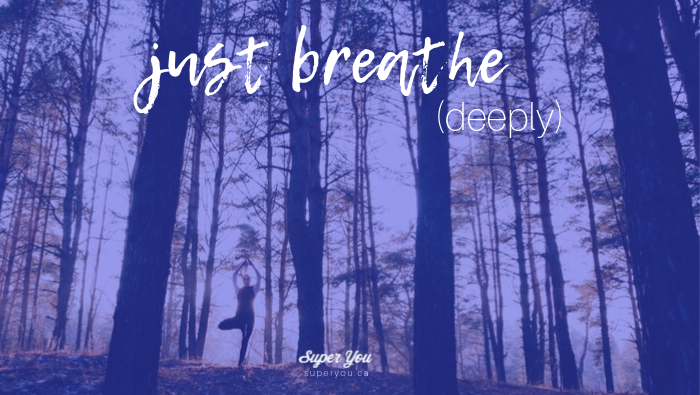Breath is essential to life. So essential it’s a complete automatic function of the body (thanks brain)! But have you ever noticed what happens to your breath when you’re stressed or overwhelmed? If you’re like most, you tend to breathe into your upper lungs (upper chest) with shallow, rapid breaths, instead of breathing into your lower lungs (lower chest).
So, what’s the problem with that?
Shallow triggers the stress response. And stress triggers shallow breathing. It’s a bit of a chicken egg cycle and none of it is good. Why? Shallow breathing can cause dry mouth and fatigue, aggravate respiratory problems, and is a precursor for cardiovascular issues. Yikes!
So, what can you do?
Take a deep breath. Literally.
In contrast, deep belly or diaphragmatic breathing, can lower blood pressure, reduce heart rate, relax muscles, decrease stress, and increase energy levels.
And it can have a really positive effect on our overall sense of well being. If you’ve ever practiced deep breathing in yoga or as part of a meditation you know that deep breathing can be incredibly grounding. And who doesn’t need that?
So, how can you practice deep belly breath?
If you’re particularly de-conditioned from this practice (don’t worry, it’s super common), start by laying on your back with your hand on your belly.
Bring your attention to your breath through your nostrils (if you can). With every breath notice the rise and fall of your belly.
If needed you can place an object like a book on your belly for a sensory cue.
Imagine your rib cage expanding sides front and back as your belly is softly expanding and falling in synchrony.
Try incorporating belly breath into your day. Whether you’re at yoga, at your desk or falling to sleep, this can be a wonderful practice of mindfulness and presence that can dramatically decrease stress. Hello winning!
